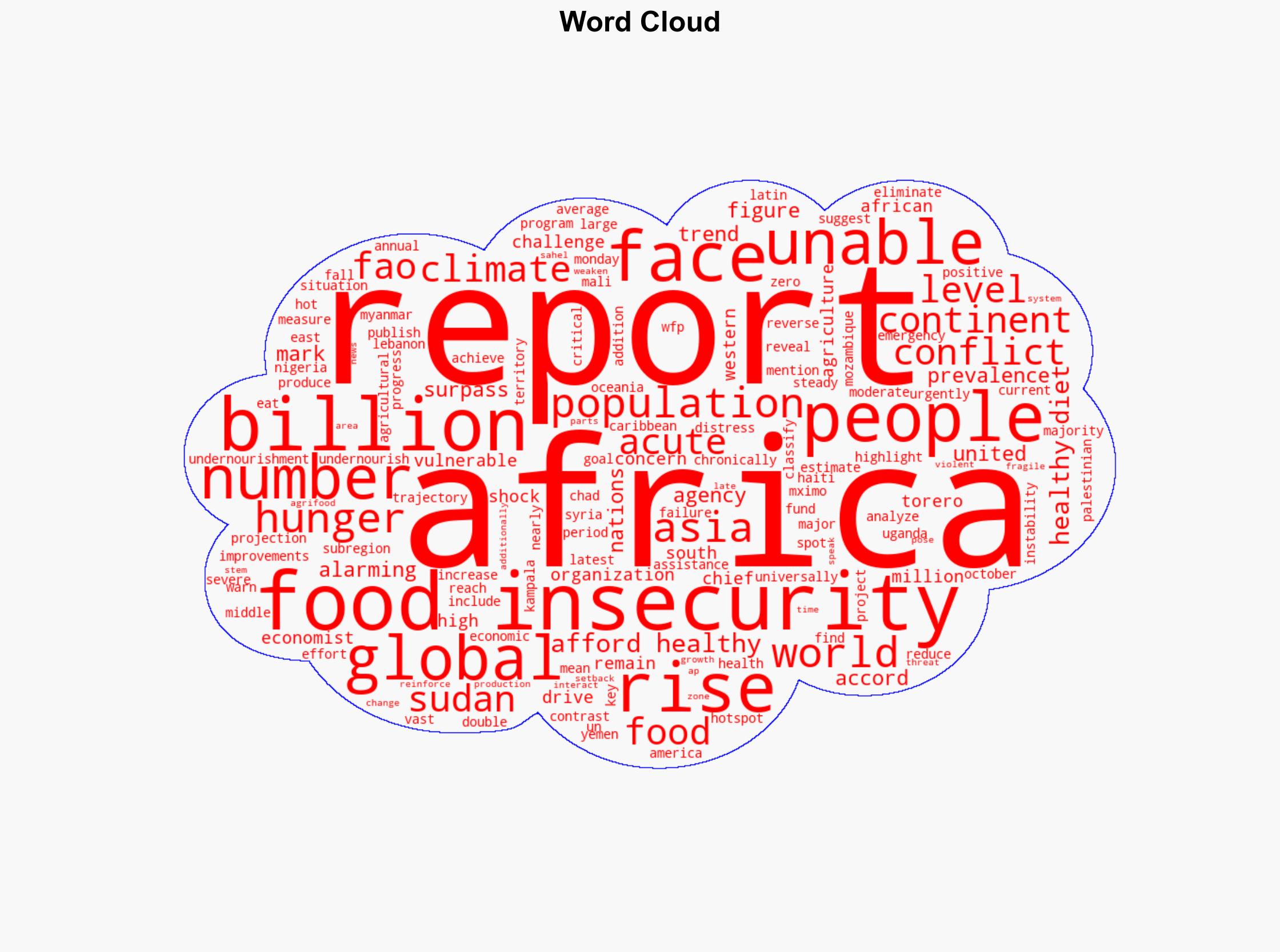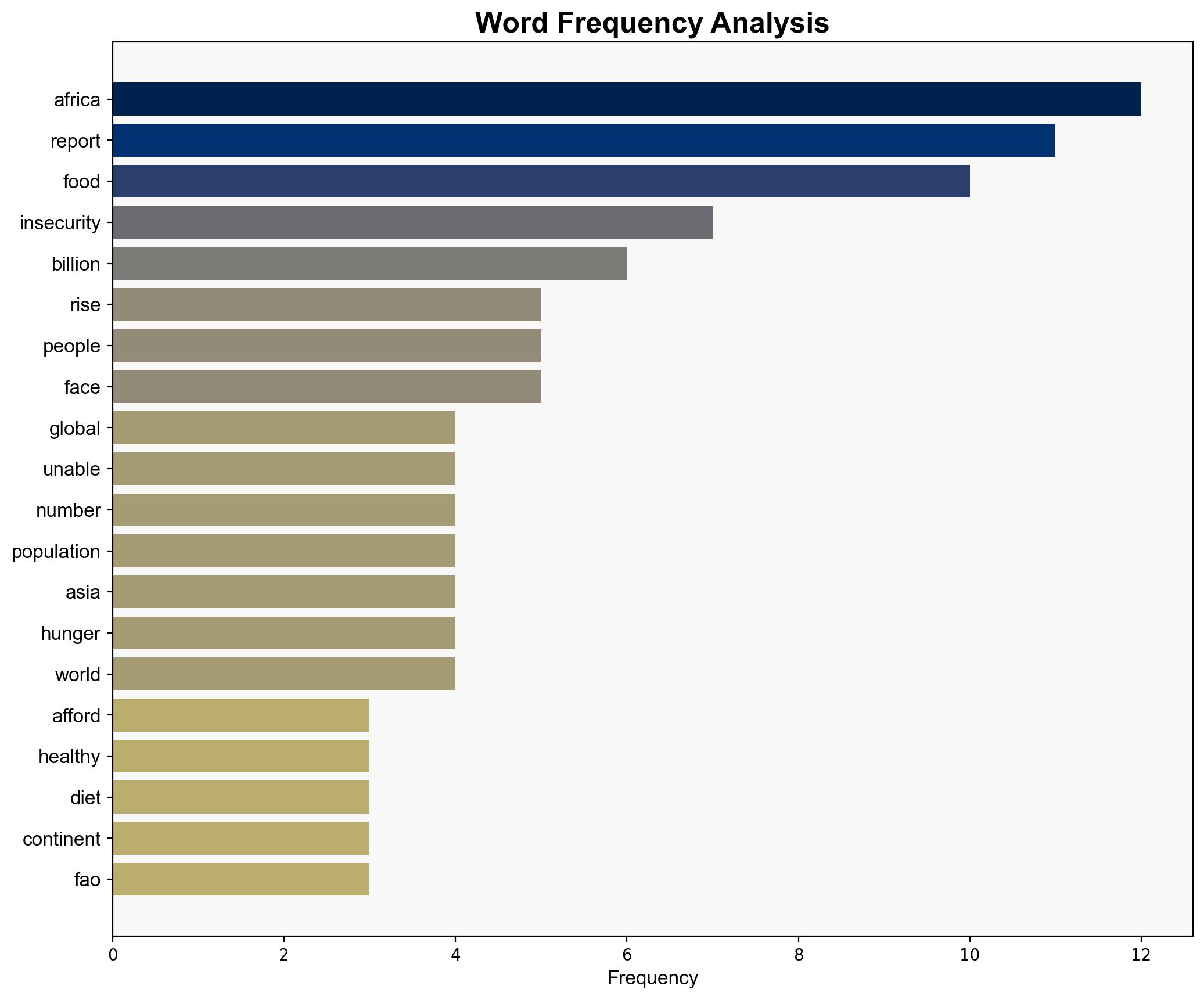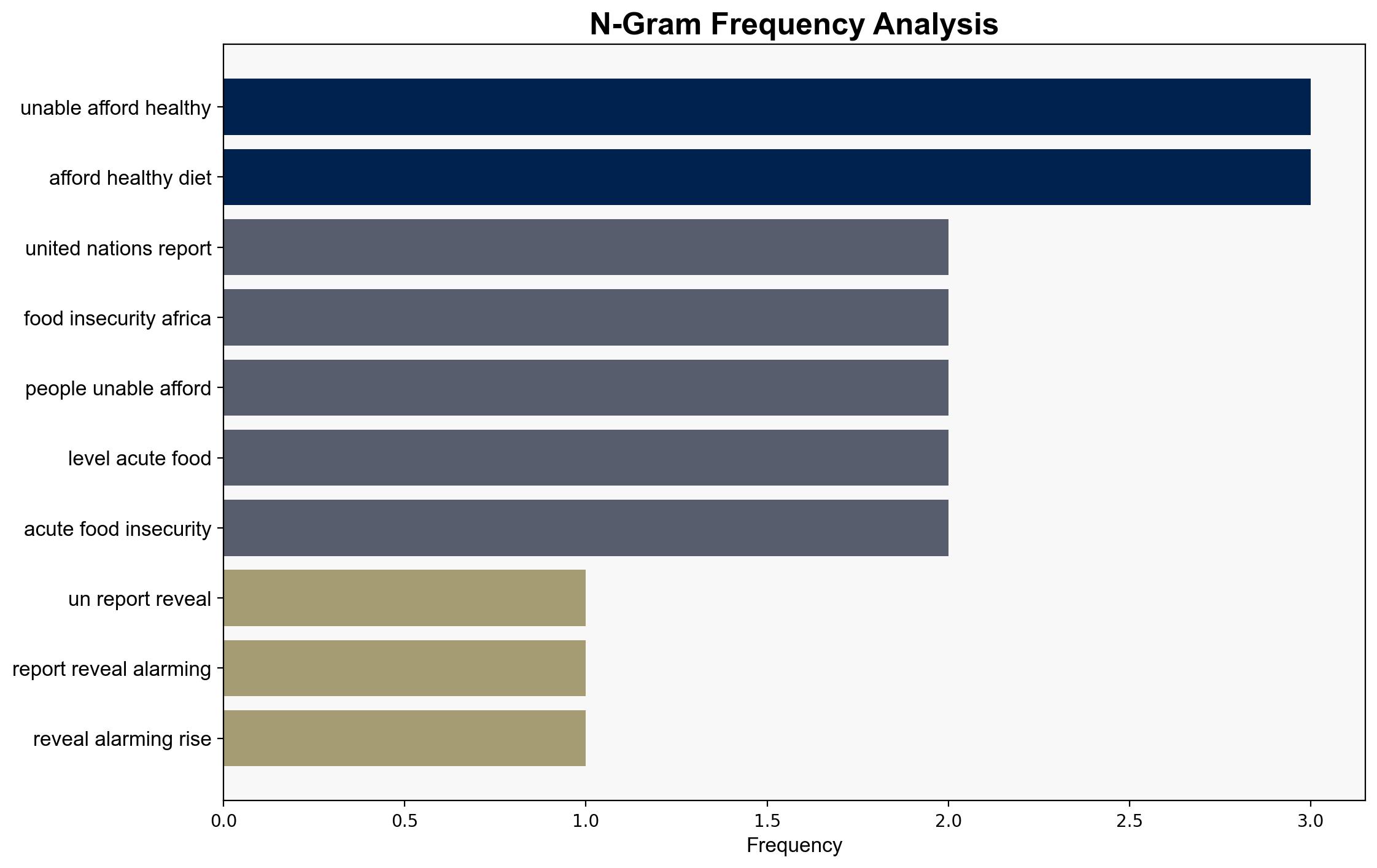UN report reveals alarming rise in Africas food insecurity despite global improvements – Boston Herald
Published on: 2025-07-28
Intelligence Report: UN report reveals alarming rise in Africa’s food insecurity despite global improvements – Boston Herald
1. BLUF (Bottom Line Up Front)
Africa is experiencing a significant increase in food insecurity, contrasting with global improvements. The most supported hypothesis is that this rise is primarily driven by a combination of conflict, economic instability, and climate change impacts. Confidence level: High. Recommended action: Prioritize international collaboration to stabilize affected regions and enhance agricultural resilience.
2. Competing Hypotheses
Hypothesis 1: The rise in food insecurity in Africa is primarily due to internal factors such as conflict, economic instability, and climate change, which have weakened agricultural systems and disrupted food distribution networks.
Hypothesis 2: The increase is largely a result of external factors, including reduced international aid and global economic shifts, which have exacerbated existing vulnerabilities in African food systems.
Using ACH 2.0, Hypothesis 1 is better supported due to the direct correlation between conflict zones, climate shocks, and food insecurity highlighted in the report. Hypothesis 2 lacks sufficient evidence of significant external economic shifts directly impacting African food security at the same scale.
3. Key Assumptions and Red Flags
Assumptions:
– Hypothesis 1 assumes that conflict and climate change are the primary disruptors of food security.
– Hypothesis 2 assumes external economic factors have a more significant impact than internal challenges.
Red Flags:
– Potential underreporting of international aid reductions.
– Lack of detailed data on the impact of specific climate events.
Blind Spots:
– Insufficient analysis of the role of local governance and policy failures.
4. Implications and Strategic Risks
The persistent rise in food insecurity could lead to increased migration, regional instability, and heightened conflict over resources. Economic instability may further erode governance structures, leading to a potential increase in extremist activities. Climate change could exacerbate these issues, creating a cycle of vulnerability and crisis.
5. Recommendations and Outlook
- Enhance international cooperation to provide targeted aid and support conflict resolution efforts in affected regions.
- Invest in climate-resilient agricultural practices and infrastructure to mitigate future risks.
- Scenario Projections:
- Best Case: Successful international intervention stabilizes regions, reducing food insecurity significantly.
- Worst Case: Continued conflict and climate impacts lead to widespread famine and regional destabilization.
- Most Likely: Gradual improvement with targeted interventions, but persistent challenges in high-risk areas.
6. Key Individuals and Entities
– Máximo Torero, Chief Economist, FAO
– Entities: United Nations, World Health Organization, Food and Agriculture Organization, World Food Program
7. Thematic Tags
national security threats, food security, climate change, regional stability





